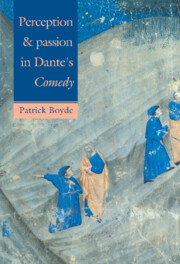Book contents
- Frontmatter
- Contents
- Preface
- PART ONE Coming to terms with Aristotle
- 1 The prestige and unity of the Aristotelian corpus
- 2 Movement and change in lifeless bodies
- 3 Self-change: growth and reproduction in plant life
- 4 Self-movement: sensation and locomotion in animal life
- PART TWO The operations of the sensitive soul in man
- PART THREE The operations of the rational soul
- PART FOUR Combined operations
- Notes
- Select bibliography
- Index of Latin terms
- Index of longer quotations
- General index
1 - The prestige and unity of the Aristotelian corpus
Published online by Cambridge University Press: 14 October 2009
- Frontmatter
- Contents
- Preface
- PART ONE Coming to terms with Aristotle
- 1 The prestige and unity of the Aristotelian corpus
- 2 Movement and change in lifeless bodies
- 3 Self-change: growth and reproduction in plant life
- 4 Self-movement: sensation and locomotion in animal life
- PART TWO The operations of the sensitive soul in man
- PART THREE The operations of the rational soul
- PART FOUR Combined operations
- Notes
- Select bibliography
- Index of Latin terms
- Index of longer quotations
- General index
Summary
‘The Master of those who know’
The first line of the Comedy tells us that the events to be narrated took place when the narrator was ‘in the middle of the journey of our life’. The words are usually interpreted (with a certain amount of circularity in the reasoning) to yield the very precise sense that it was 1300, when Dante was in his thirty-fifth year. But it is equally possible, and highly desirable, to understand the phrase less narrowly as meaning ‘in our middle age’, that is, in the second of the three ages of man, which, in Dante's view, extends from the twenty-fifth to the forty-fifth year of a normal human life span.
There are several linked advantages in this more flexible formulation. It helps us to see that the protagonist is portrayed with critical detachment by the author of the poem, who writes from the superior vantage point of full maturity gained in the third age. It prepares us to recognise that Dante-the-author depicts his earlier, wayward self as a typical representative of that time of life, as someone who manifests both the weaknesses and the ‘signs’ of innate goodness which theory would lead one to expect in a well-endowed man during his middle years. Taken together, these considerations remind us that Dante-the-pilgrim is a character in a work of fiction: he is partly drawn from life, partly a free creation and partly modelled on a type.
- Type
- Chapter
- Information
- Perception and Passion in Dante's Comedy , pp. 3 - 10Publisher: Cambridge University PressPrint publication year: 1993



